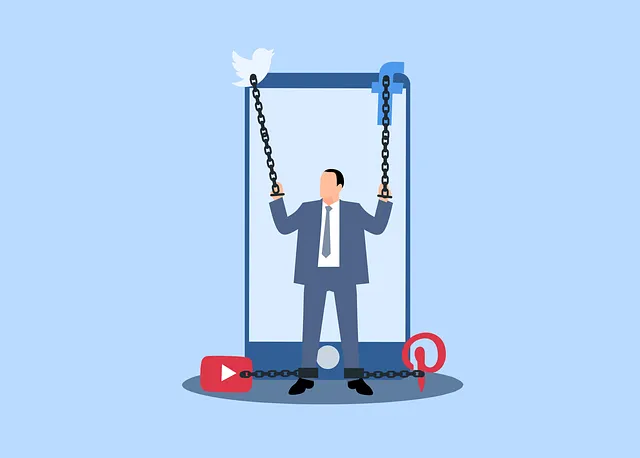Emotional intelligence (EI) is a powerful tool for personal growth, well-being, and success, as embraced by organizations like Boulder Kaiser Permanente. By prioritizing self-awareness through practices like meditation and journaling, individuals can manage their emotions, improve mood, build confidence, and enhance relationships. Boulder Kaiser Permanente's mental health phone line offers support in these areas, teaching skills to understand emotions, strengths, and weaknesses. Active listening, a key EI component, fosters stronger connections, resolves conflicts, and promotes emotional regulation. These resources contribute to better mental wellness, healthier relationships, and improved quality of life.
Emotional intelligence (EQ) is a powerful tool for personal and professional growth, enabling individuals to navigate relationships and challenges effectively. This article explores strategies to build EQ at Boulder Kaiser Permanente, focusing on four key areas: understanding emotional intelligence, cultivating self-awareness, developing empathy, and practicing active listening. Discover how these techniques can enhance mental health and communication skills, empowering you to lead a more fulfilling life. Contact the Kaiser Permanente mental health phone number for personalized support in your journey towards emotional well-being.
- Understanding Emotional Intelligence: Unlocking Its Power
- The Role of Self-Awareness in Building EQ
- Developing Empathy: Connecting with Others on a Deeper Level
- Practicing Active Listening: Enhancing Communication Skills
Understanding Emotional Intelligence: Unlocking Its Power

Emotional intelligence (EI) is a powerful tool for personal growth and well-being, often described as the ability to understand and manage your own emotions, as well as recognize, empathize, and influence the emotions of others. This concept has gained significant attention in recent years, partly due to organizations like Boulder Kaiser Permanente recognizing its importance in mental health support. By unlocking the power of EI, individuals can navigate complex social interactions with greater ease, fostering healthier relationships and enhancing their overall quality of life.
At its core, EI involves embracing Mind Over Matter principles, where conscious control over thoughts and emotions becomes a game-changer. This includes effective mood management—regulating one’s emotional responses to stressful situations—and building confidence through self-awareness and empathetic understanding of others’ perspectives. Through these practices, individuals can transform their lives, improving both personal relationships and professional success.
The Role of Self-Awareness in Building EQ

Emotional intelligence (EQ) is a key component of overall well-being, and self-awareness plays a pivotal role in its development. At Boulder Kaiser Permanente, their mental health phone number serves as a valuable resource for individuals seeking support in enhancing EQ. Self-awareness involves understanding your emotions, strengths, weaknesses, and how these factors influence your thoughts and actions. It’s about recognizing that you’re responsible for your feelings and that they don’t control you.
Developing self-awareness encourages individuals to engage in reflective practices, such as meditation or keeping a journal, which can foster a deeper connection with one’s inner world. This process allows people to identify their emotional triggers, understand their reactions, and ultimately make conscious choices rather than reacting impulsively. By cultivating self-awareness, individuals can improve their ability to manage stress (through effective stress management techniques) and cultivate positive thinking, all of which contribute to overall mental wellness.
Developing Empathy: Connecting with Others on a Deeper Level

Developing empathy is a cornerstone of emotional intelligence and can profoundly impact one’s connections with others. It involves stepping into someone else’s shoes to understand their feelings, perspectives, and experiences. This skill is cultivated through active listening—a practice that goes beyond hearing words and encompasses paying attention to both verbal and non-verbal cues. At Kaiser Permanente, their mental health phone number offers valuable resources for those seeking guidance in navigating emotional challenges and enhancing emotional well-being.
By fostering empathy, individuals can build stronger relationships and create a supportive environment. This ability to connect on a deeper level enables effective crisis intervention, as it allows professionals or caregivers to respond sensitively during challenging situations. Through empathetic interactions, people can promote positive mental health and support one another in cultivating emotional intelligence, ultimately enriching their lives and communities.
Practicing Active Listening: Enhancing Communication Skills

One effective way to build emotional intelligence is by honing your communication skills, and at the heart of this lies active listening. It’s a simple yet profound practice that involves giving your full attention to what someone else is saying, both verbally and non-verbally. When you engage in active listening, you show genuine interest and respect for the speaker, fostering an environment conducive to open dialogue. This skill is invaluable, especially when seeking guidance from mental health professionals like those available at Boulder Kaiser Permanente via their phone number, where understanding and empathy are key to effective treatment.
By practicing active listening, you can improve your ability to connect with others, resolve conflicts, and build stronger relationships. It allows you to clarify thoughts, gain different perspectives, and better understand emotions—a crucial aspect of emotional regulation, which is a key component in the development of coping skills. This technique, when combined with crisis intervention guidance from professionals, can empower individuals to navigate challenging situations more effectively while promoting overall mental well-being.
Emotional intelligence, a powerful tool for personal and professional growth, can be cultivated through self-awareness, empathy, and active listening. By understanding and managing our emotions, we can forge deeper connections with others, leading to improved relationships and enhanced communication. For those seeking support in their mental health journey, the Boulder Kaiser Permanente phone number offers a valuable resource, emphasizing the importance of accessible care in building emotional resilience.






